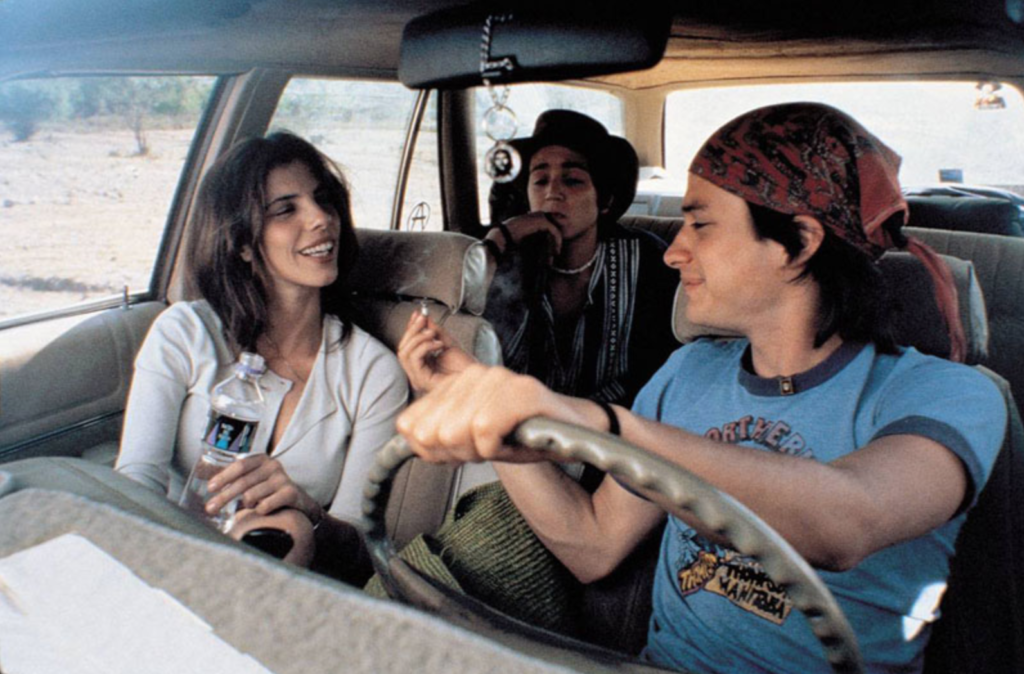
There was this trend in a lot of indie movies from the early 2000’s, particularly international films. A narrator would break the action to describe very specific details about insignificant side characters. Short little synopses of their lives, their joys and their misfortunes. And then we never see or hear about that character again. It can feel unnecessary at first, because it can feel like a cheap way to artificially widen a film’s scope. Make it feel rich and textured without having to do the work to flesh the world out. Or maybe it’s just used to make it feel artistic. But that’s not how Cuaron uses it here.
These characters’ stories are the same as the little asides we get throughout the film. We are following the story of these three people, but to the people they interact with throughout the film, their story is the short little aside. Because this story IS bigger than these three characters’ journey to a beach in the summer. This is a film about Mexico. About its culture, its beautiful landscapes, its vibrant and thriving people. Y Tu Mama Tambien is ultimately about identity, and how we come across our own identity by interacting with other people – people both alike and different from us. While these characters each struggle to find their identity, they are innately connected to the identity of the place they are in. They are shaped by the experiences they have and the places they go. This film is famous for its sexual content. And sure, that’s a big part of it. But that’s just the surface of what Cuaron is getting at here. For Luisa, it’s about breaking free from the constraints of her life and experiencing something she had repressed. It’s about finding herself again – finding what she wants and needs. It’s about closure too. For Julio and and Tenoch it’s about exploration – about seeing a different perspective and, in a way, growing up and finding their true identities (even if they don’t fully acknowledge their true identities – but we never do, do we?).
In the hands of any other group of filmmakers and actors, this film’s identity could have been solely defined by the superficial surface. By its lurid sexuality. But when you watch it, that’s not what sticks out. What sticks out is the heart and the beauty of this journey that these three people take together. Gael Garcia Bernal, Diego Luna, and Maribel Verdu all put in outstanding performances – performances that would lead to very successful careers. And Alfonos Cuaron has now found himself at the top of the directorial game. He can basically do whatever he wants. All because of this sexy little road trip movie that reaches far beyond its grasp, towards something real and honest.
4 out of 5 stars